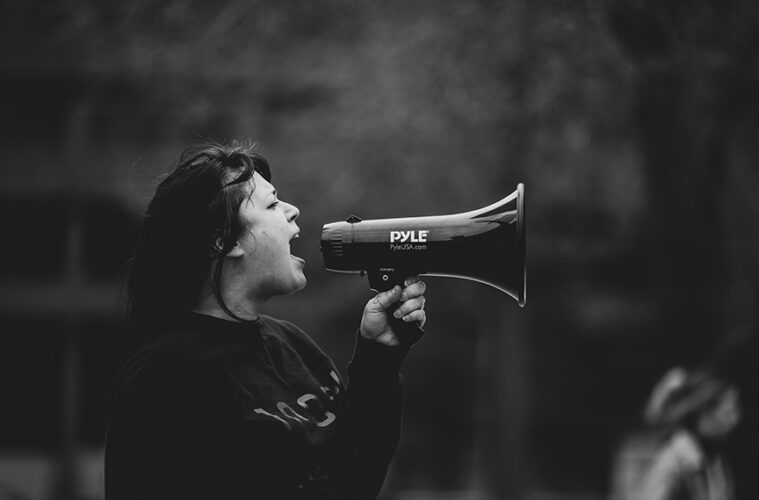BY VIRGINIA SANTY
You don’t need me to explain the strong causal relationship between women’s access to abortion services and women’s—nay, our entire nation’s—economic success. Why? Because first of all, it should be intuitive. Allowing women to determine when to become mothers gives them the time and freedom to pursue education and work. Allowing women to determine how many children they have means women can appropriately allocate and control their resources in the world, both what they have and what they need.
Second, this argument is currently everywhere. Everyone is speaking up and talking about how we know, beyond a measure of a doubt, that abortion access leads to greater individual, community, and state earnings (and if you haven’t seen these studies and articles, I’ll link to some resources at the bottom of this post). Seldom are social scientists able to demonstrate causal relationships so clearly “in the wild”; but thanks to the differences in state approaches to abortion, we can say, without qualification, that abortion restrictions cause economic harm to women, and therefore the economies in which they do (or do not) participate. Third, I’m tired of pretending there is any rationale for legislating women’s bodies, or any rational argument that will prevent it. And you need to stop pretending, too.
Because it’s about misogyny. And there is no rationalizing when it comes to misogyny.
For those of us who may need a refresher, misogyny is the dislike of, contempt for, or ingrained prejudice against women. Misogyny’s history is millennia old and deeply entrenched in how we understand women and those who identify as women. It’s elucidated for me in this quote from Catherine Mackinnon: “When will women be human? When?” One of misogyny’s central features is refusing to allow women full status as citizens by denying them social, legal, political, or economic rights. Misogyny can be overt, as in the case of femicide, or a more everyday occurrence like when a man at a bar calls you a nasty and derogatory word for accidentally bumping into him. It can also be subtle, and so woven into the fabric of our social networks and daily life, we believe it represents truth. Finally, men, women, and anyone in between can be a misogynist.
Here’s a little experiment to test how deep misogyny runs and reveal how accustomed we are to it. Ask someone what he or she thinks of the idea of men getting vasectomies at a certain age to prevent unwanted pregnancies. It’s rational: a woman can have one pregnancy in a year. A man can theoretically cause thousands. A vasectomy can be reversed and it’s a simple, outpatient procedure that prevents unwanted pregnancy from ever occurring. But again, rationality has no place here. So, go ahead, ask your question. Some people may be all for it and some will sputter and shake their heads and start to wax philosophical and political about human rights and bodily autonomy. For many people, the notion of regulating men’s bodies in any way is heretical. Inconceivable. It sounds like crazy talk and is immediately dismissed. That, my friends, is an ingrained prejudice against women. That, dear readers, is misogyny.
Our collective failure to recognize and work against the dislike, contempt, and prejudice aimed at us as women are some of the reasons we are here today. We think “no, our government doesn’t hate us. It doesn’t think we are unworthy of being citizens! Sure, we aren’t mentioned in the constitution, but c’mon! We are like 24% of the Senate! And a woman almost kinda became President once! And it’s not like we don’t get paid the same as men or experience any disparities in how we are treated by the medical community! Pfft! Of course, my country doesn’t hate me. You are being ridiculous.”
I am here to not-so-gently ask you to wake up and to see the writing that’s been on the wall, with varying levels of intensity, your entire life. Here’s the Big Truth: if you are a woman or identify as a woman, you are the object of scorn, contempt, dislike, disregard, prejudice, and yes, even hatred. That’s especially true if you are a woman living in poverty or a woman of color.
Oh, shoot! Did that make you uncomfortable? Did it make you feel bad? Yeah, I get it. It really sucks to realize someone doesn’t like you particularly when it has nothing to do with you as a person. It feels like 4th grade when Jaymee whispered to you in music class “Brenda says she hates you.” Wait, what? Why?? You didn’t even do anything! That’s so unfair!!
Same goes with misogyny. It’s not personal but it’s unfair AF. And, as we’ve seen, completely, obscenely irrational.
So now that you’ve had a sec to feel bad and uncomfortable, it’s time to get angry. Do not let Brenda walk all over you! Our complicity in misogyny comes in the form of accepting the contempt slung our way, in all its variations: legislation, wage disparity, sexist jokes, expectations around care work, and the list goes on. All of these things serve to solidify our place as less than full citizens. I refuse to be complicit in or perpetuate prejudice or hatred against me or any other woman, anymore. I will fight before I let it slowly erode me. I need additional tools, rational arguments alone won’t work, but I am determined to do my best to figure it out.

